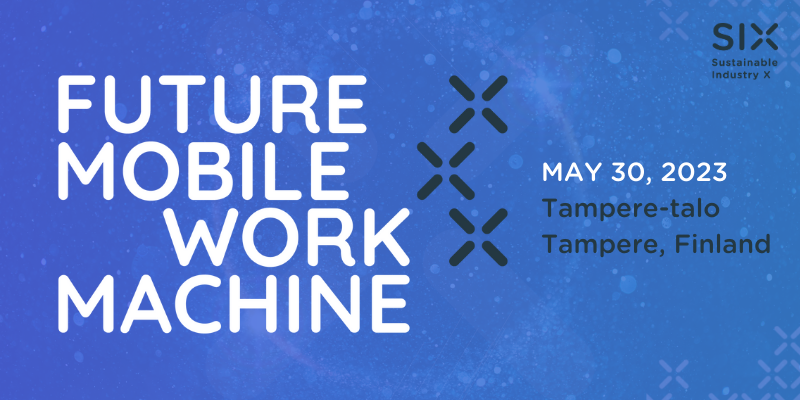Stretching towards the future – and bouncing back to business
23.5.2023
Mikael Karlsson, founder and CEO of Mika Innovation AB will challenge the visitors of Future Mobile Work Machine 2023 to step away from everyday thinking and try the rubber band analogy.
During his long career working with business development at Volvo Trucks, Mikael Karlsson has lived to life the much-used rubber band analogy several times. For him, it means stretching towards the future, and then bouncing back to start doing what the future will bring already today.
Following the method, Karlsson he has been pushing the boundaries in the automotive industry and creating new value by combining the three megatrends: electrification, connectivity and automation. As a result, transport as a service has become the common thread in Karlsson’s work.
One of the many examples of his innovative work include Volvo’s first electric bus that was introduced in Volvo Ocean Race 2014-15. The two pilots, all-electric Volvo buses carried visitors back and forth between downtown and the event venue.

“Back then, I got the first experience working in collaborative programmes with the City of Gothenburg, local energy companies and other players to create a new transport solution that stretched much further than the vehicle,” Karlsson recalls.
Volvo Trucks’ first electric, autonomous vehicle, Vera had its first assignment couple of years later, in 2019, transporting goods from a logistics centre to a port terminal in Gothenburg. Vera’s work was part of a collaboration between Volvo Trucks and the local ferry and logistics company. Karlsson’s idea with Vera was to create a connected transport solution that optimises transport flows and takes safety, efficiency and sustainability to the next level.
Tackling the challenges of the transport industry
After several executive-level positions at Volvo Trucks, Karlsson is now developing same ideas further in his own company Mika Innovation AB. The company is developing purpose-built Transport as a Service (TaaS), consisting of a transport management system and an electric, software-defined and autonomous transportation carrier, named Jenny. It can be integrated into the customer’s system and used for short-distance repetitive transportation tasks.
The solution is tackling some of the challenges that the traditional transport industry faces: manual handling, shifts, safety issues and staff shortages make it prone to interruption and inefficiencies.
“The transport carrier can lower asset costs by more than 30 per cent when it is built to do the job instead of pleasing the driver,” says Karlsson.
Focusing on transport resource efficiency - instead of the features of the vehicle – is still a new mindset for many in the automotive industry, Karlsson notes. “In the future, you will sell productivity – not vehicle features, driving comfort or high horsepower. It will not be business as usual.”
In Tampere, Karlsson is looking forward to expand his network.
“Finnish companies are well set for the new era in automotive, where new technologies will play a major role. For instance, Ponsse and its subsidiary EPEC are at the forefront of technology for high-productivity solutions in forestry, driving new EE architectures, connectivity, and e-mobility solutions. I am very much looking forward to collaborating and expanding my network with industry leaders” Karlsson concludes.
Mikael Karlsson’s keynote speech at Future Mobile Work Machine 2023 in Tampere, May 30th - Creating new value through technology & business model development .
If you are intrested to join FMWM event, please contact: elina.tiainen@tamlink.fi